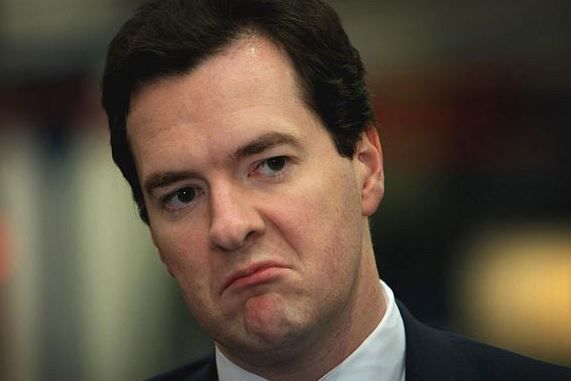 UK public sector net borrowing increased £1.1 billion in October to £8.2 billion from £7.1 billion a year earlier, marking the highest level of borrowing for the month in six years, according to official data on Friday.
UK public sector net borrowing increased £1.1 billion in October to £8.2 billion from £7.1 billion a year earlier, marking the highest level of borrowing for the month in six years, according to official data on Friday.
The amount of borrowing was much higher than what economists had forecast. A Reuters poll predicted borrowing of just £6.0 billion for the month.
Government borrowing this year is currently 11 percent less than what it was at the same point last year, however, progress has been much slower than what George Osborne had hoped for. The UK government has borrowed £54.3 billion so far this year.
It is unlikely that Osborne will achieve his goal of borrowing under £69.5 billion for the whole financial year. In fact, to meet that target the government would have to restrict borrowing to £15 billion between now and April.
The new data is expected to prompt the Office for Budget Responsibility to raise its forecast for government borrowing this fiscal year at next week’s Autumn Statement. The OBR’s previous forecast called for a 23% decrease in borrowing over the financial year on lower spending and more tax receipts.
Pantheon chief UK economist Samuel Tombs believes that the public deficit could reach £80 billion this year. He said that the “terrible borrowing figures provide a grim backdrop to the Autumn Statement”.
Tombs added: “Barring revisions, borrowing would have to be an implausible 48% lower year-over-year in the second half of this fiscal year in order for the current official forecast to be met.”
A Treasury spokesperson said that the figures indicate that rebalancing the economy was “not yet done”, adding that “government borrowing remains too high”.
Howard Archer chief UK and European economist at IHS Global Insight said: “George Osborne now has an almighty task to meet his fiscal targets for 2015/16.
“Indeed, if the pattern of the first seven months of the fiscal year continued, public sector net borrowing would amount to £80.3bn in 2015/16, which would mean that Mr Osborne would overshoot by some £11bn the target of £69.5 billion contained in his July budget.”
